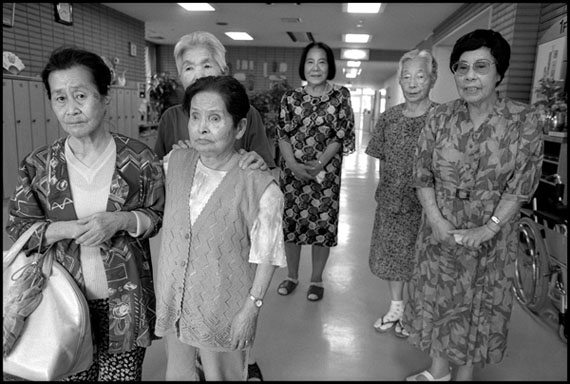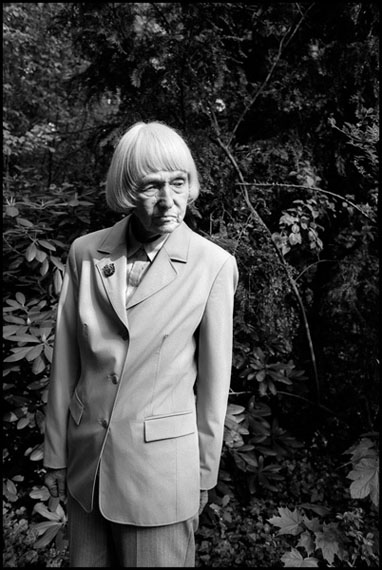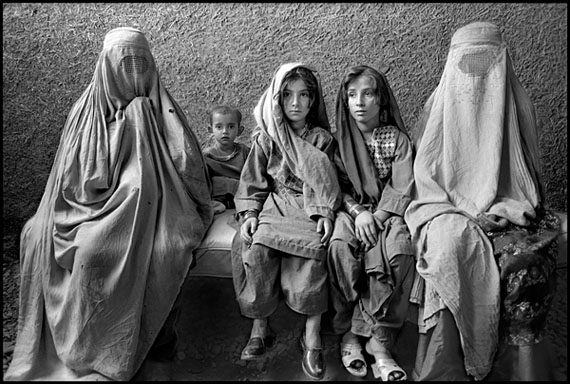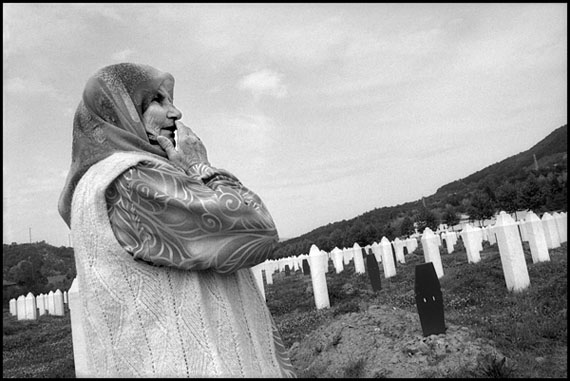
Marissa Roth »
One Person Crying: Women and War
Exhibition: 15 Jan – 12 Mar 2015
Sat 17 Jan 18:00 - 21:00

"One Person Crying: Women and War"
Traveling exhibition returns to California after Germany, France and Wisconsin.
Exhibition: January 15 – March 12, 2015
Opening Reception: Saturday, January 17, 6 to 9 p.m. Marissa Roth will be in attendance
Artist Gallery talk: Sunday, January 18, 2015, 2:00 pm
Marissa Roth is pleased to present "One Person Crying: Women and War" at Venice Arts, Venice, California. The exhibition will be accompanied by a documentary film screening series connecting the themes in Roth’s exhibition with powerful stories of women in three different communities as they confront war and its aftermath. Roth will also be teaching an intensive 2-day photography workshop.
The topic of Women and War has taken photographer Marissa Roth to many countries and cultures over a time span of 29 years. It began in 1984 with a family trip to the former Yugoslavia, home of her Jewish grandparents - who were murdered by Hungarian Fascists in 1942 - and Pakistan in 1988 with an assignment by the Los Angeles Times to photograph Afghan women refugees. Accompanying a medical mission and photographing refugees in Albania in 1999, she realized that the focus of the immediate and permanent effects of war on women was a recurring theme in her work. In addition to the photographs, the exhibition features the stories of the women portrayed and how the war irrevocably altered their lives.
"This project brought me face to face with hundreds of women, who endured and survived war and its ancillary experiences of loss, pain and unimaginable hardship. I traveled around the world photographing and interviewing women, recording their histories, capturing gestures and gruesome details in order to document how war altered their lives irrevocably. I was compelled to show the faces and give voice to war from the women’s perspective. In the photographs there are no signs of blood or weapons. They only show life lived against an eternal postwar backdrop." ~Marissa Roth
Marissa Roth, born in the USA, is a freelance photojournalist and documentary photographer. She worked for numerous newspapers and magazines, such as The New York Times, Time Magazine and Newsweek. Roth was part of the Los Angeles Times team, which won the 1993 Pulitzer Prize for best local reporting about the 1992 civil unrest in Los Angeles. She teaches at several academic institutions. Her work has been shown in solo and group exhibitions and is represented in museums and collections. Roth’s latest book, “Infinite Light: A Photographic Meditation on Tibet”, was released in April 2014.
For more information: www.photokunst.com
�

Marissa Roth / Artist Statement
When humanity is betrayed by madness, war often follows. This project has been about my reconciliation of man’s need for war and the inadvertent upheaval imposed on the women who are directly affected by it. The slow-burning post-war truth that I have learned, is that in the end, war shows up men’s weaknesses and women’s strengths. For men, bravado doesn’t yield easily to admissions of loss or the failed ability to protect their own. Natural caretakers, women pick up the pieces, turning broken lives into replanted gardens. The bridge of anguish is crossed innumerable times from both sides, yet the perspective is always different because of gender roles, cultures and historical context.
I naively believed that war and peace were black and white sociological options. Gradually over the course of this 29-year project, which mirrored the arc of my own maturation process, my world-view palette shattered into a hundred shades of gray. Refusing cynicism, I have learned that war and peace are just words, that in fact it is the invisible thin line between civilization and anarchy, tolerance and intolerance - between 2 people, then 10 people, then a thousand people, then a million people, that predicates constructive coexistence.
I’ve read the story of war through the faces of every woman I have met on this project. Their eyes became words strung together in sentences of suffering, imprinted onto sheaths of tears bound together by a common experience, where neither time nor place matters. What matters profoundly to many of them is the universal knowledge that other women, who also survived war, share the same tragic secret of what it feels like to have lived through it.
Death doesn’t chose sides, but choosing life after war is quite another matter. A number of the women I have met around the world gained impossible strength from their heartache and losses and turned their gaze towards activism, advocating for social justice, peace and teaching tolerance. Their process was not always immediate or easy but came to them slowly as they faced post-war hardship, and healed physical and psychological wounds. I have tried not to take sides in illuminating a conflict, but rather chose to highlight women from all sides in order to tell the story of that particular war. The words are the same whether spoken in Belfast or Bosnia, in English, Hungarian or Cambodian. The women who I have chosen to feature here include activists and the unknown, reflecting the spectrum of women who embody ferocious spirits and quiet strength. Each in their own way chose life and made an indelible impression on me.�
